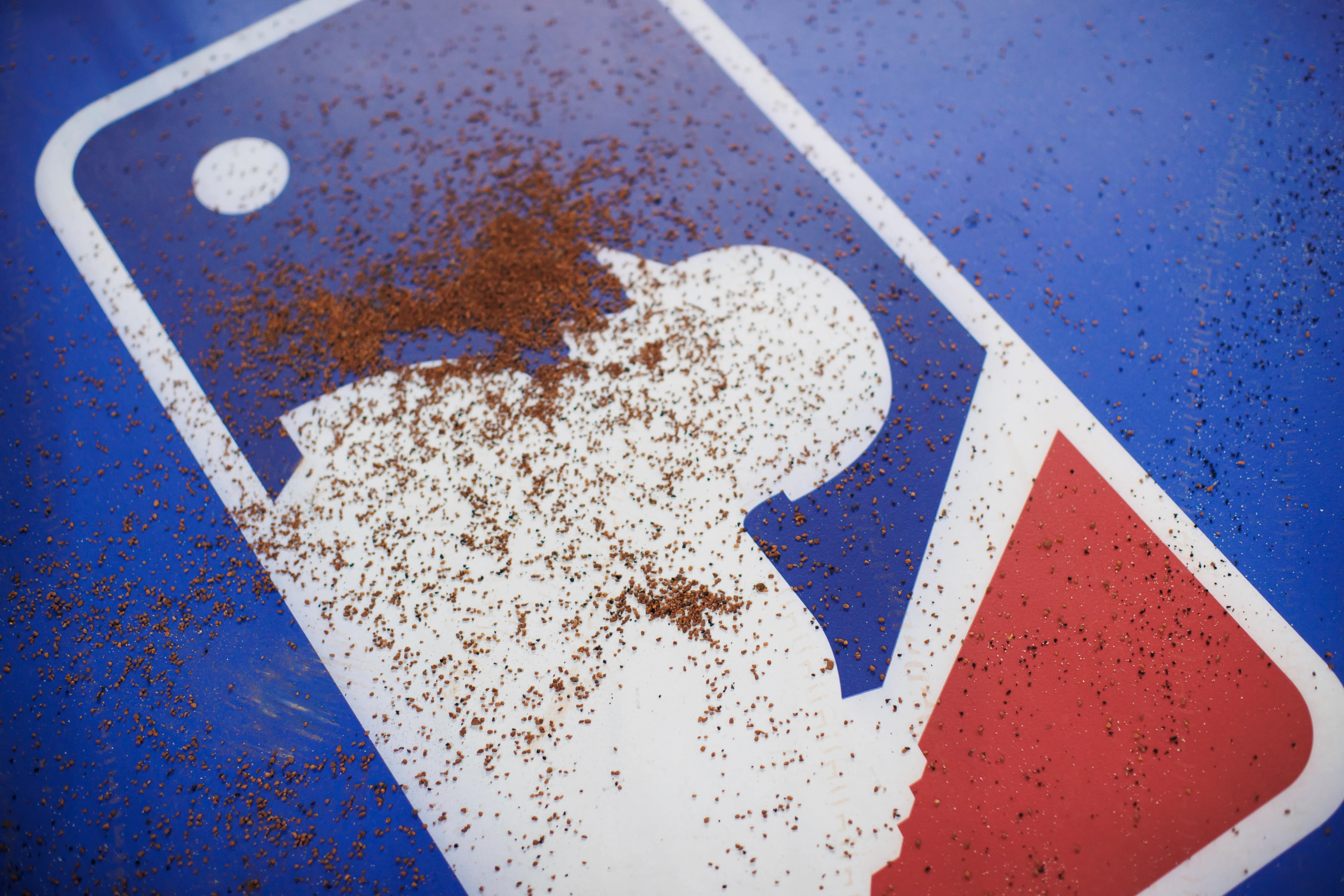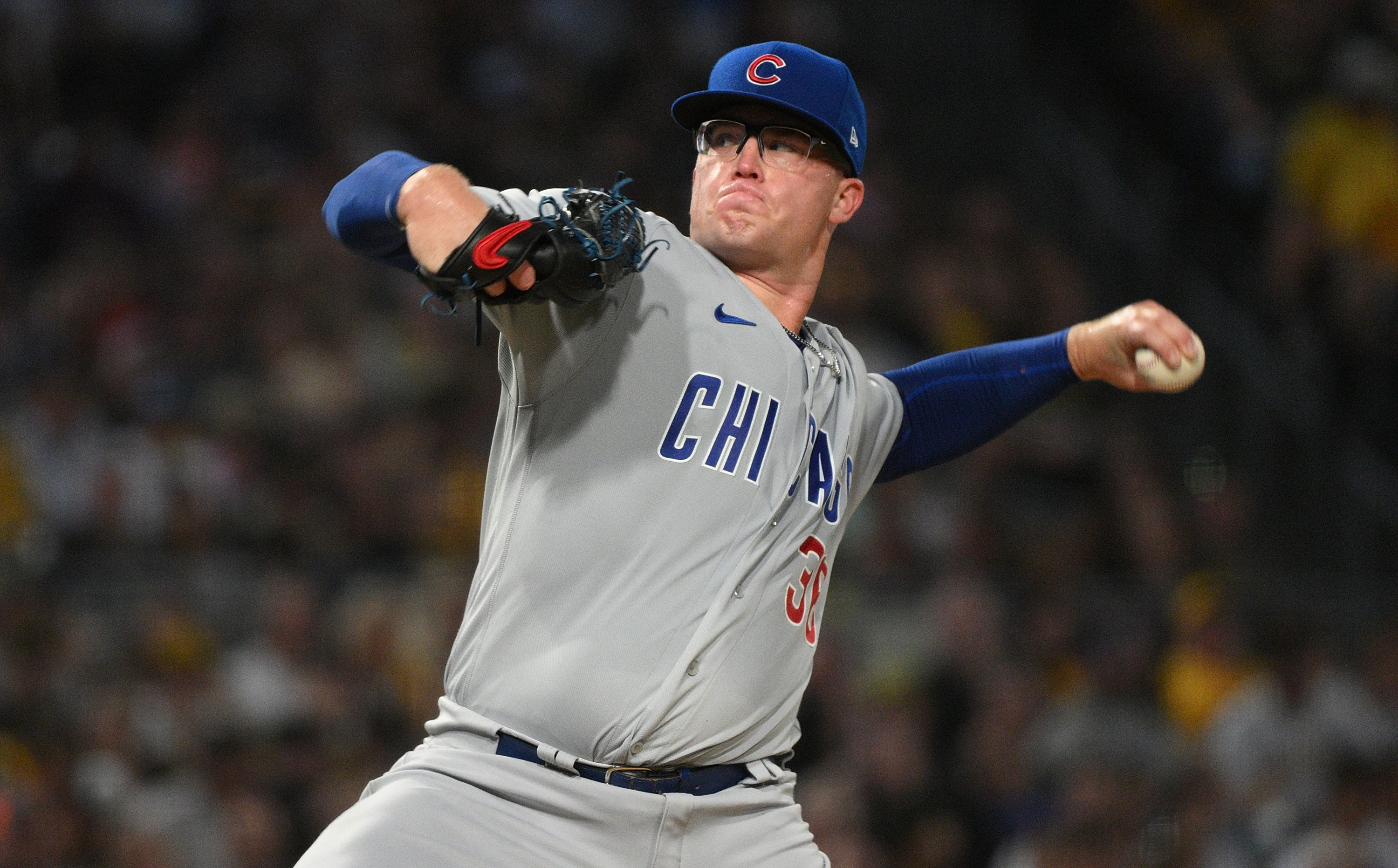
HAZLETON, Pa. – Pressure? The stress of managing the Cubs, dealing with the 1908 baggage and handling the demands from the Chicago market is nothing compared to being stuck in the baseball wilderness.
That’s where Joe Maddon spent enough of his career to know how good he has it now. That’s why Maddon isn’t going to let you see him sweat, especially with a loaded roster that FanGraphs projects will win 95 games this year, an iconic stadium that feels like a computer-generated scene from “Gladiator” and everything a world-class city has to offer a star manager.
“Here’s the thing, and I can’t emphasize this enough: I am so happy that it took me so long to get here,” he said during filming for the “Going Home: Joe Maddon” documentary that premieres Thursday night on Comcast SportsNet Chicago.
“All those like ‘near-misses’ or ‘Should I really keep doing this?’ Or ‘Am I on the right path here? How do I get to the next level?’
“I cannot imagine doing this job without the history that I’ve had. I can’t even begin to imagine what that would be like.”
Thanks for playing
Maddon opened the letter from Mike Port – a California Angels executive who would help shape his career path – after the 1979 season. Maddon wasn’t drafted out of Lafayette College – and had spent parts of four seasons catching on the Class-A level – but the news still felt like a shock to his system.
MLB
“A horrible feeling,” Maddon said. “I’m not a college graduate. I’m hanging out in Salinas, California. I thought I was pretty good. And I get this letter I’m being released."
[MORE CUBS: How Joe Maddon’s blue-collar roots made him perfect fit for Cubs]
Maddon had been the first in his Italian-Polish immigrant family – the name had been shortened from Maddonini – to go to college. But he didn’t finish his degree in economics and he definitely wasn’t a silver-spoon kid.
Returning to Pennsylvania’s coal-mining region and taking over the family business in Hazleton – Joe Sr. ran C. Maddon and Sons Plumbing and Heating – was never an option.
“(When) I went to Lafayette,” Maddon said, “I was homesick the first couple days, and I called (my mother) from a pay phone at my dorm. I said: ‘Beanie, I want to come home. I want to be a plumber like Dad.’ She said: ‘No, you’re not.’
“That was the end of that. That was the first week of school. She was right.”
Maddon wound up playing for two independent teams in California – “My room was a closet – I’m not lying – I was living in a closet” – before coming back to Hazleton to work at a home for juvenile delinquents.
By 1981, the Angels had hired Maddon back as a scout and a minor-league manager. He drove all over the Rockies looking for players. He managed six seasons in places like Idaho Falls, Peoria and Midland, Texas. He worked as a roving hitting instructor from 1987 until 1993. He spent time as a minor-league field coordinator and a farm director before finally getting promoted to the big-league coaching staff in 1994.
“Joe had many, many jobs that no one that I knew envied,” said Bob Curry, a longtime friend who married Maddon’s cousin, Elaine, and is the founding president of their Hazleton Integration Project.
“No one was saying: ‘Gosh, I wish I was riding around in a school bus with a baseball bat being a hitting instructor for a (minor-league) team,’ or a scout where he’s going from city to city to city.
“People don’t realize how much you sacrifice. You sacrifice being with your family, watching your kids grow up, and we were always very conscious of that.
“But Joe was single-minded in his purpose. He always understood this is what he wanted to do. And in some ways, that’s a great fortune. There was never any question. This was it. This was his pathway.”
Waiting for the big break
A company man, Maddon took over when the Angels needed an interim manager in 1996 and 1999, raising his profile to the point where he interviewed for jobs with the Arizona Diamondbacks, Seattle Mariners and Boston Red Sox.
Future Cubs executives Theo Epstein and Jed Hoyer met with the Angels bench coach at the Arizona Biltmore in Phoenix after the 2003 season, with Maddon finishing second to Terry Francona, who would guide the Red Sox to two World Series titles.
[MORE CUBS: Youth movement will pay off for Cubs in 2016]
“I always thought I would be a big-league manager,” Maddon said. “I always did. I never lost hope with that. I didn’t know where, when or how. But I always thought, too, I would like to start out with an expansion club, so you could build.”
That’s essentially what the Tampa Bay Devil Rays still were when Maddon interviewed with Andrew Friedman and Matt Silverman – two young executives with Wall Street backgrounds – in October 2005. They met during the World Series at a hotel in Houston, where the White Sox would sweep the Astros, ending Chicago’s 88-year drought.
Tampa Bay had lost at least 91 games in each of the franchise’s first eight seasons, and Maddon would get two last-place finishes on his resume before the Rays shocked the baseball world and made it to the 2008 World Series.
Maddon didn’t get the Tampa Bay job until three months before his 52nd birthday, giving him the patience, emotional intelligence and scar tissue to handle a massive rebuilding project and the newfound fame.
“His personality (has) not changed at all,” Curry said. “I think had he achieved success at a very early age, that may have been an entirely different story.
“Because we all know people who do achieve success at an early age, and there’s no sense of perspective. With Joe, he’s always conscious of where he came from, who he is, and he’s always getting back to his roots.
“The Joe Maddon that you guys see on television is the same Joe Maddon that I see in my living room.”
“You think I do crazy things?”
Maddon developed the mad-scientist act throughout his long climb to the top. But at this point, Big Data has overtaken the industry, extreme defensive shifts are standard operating procedure and zoo animals and dress-up trips are all part of The Maddon Experience.
Five 90-win seasons with the Rays – and his easygoing nature in front of the cameras and the national media and on Twitter – turned Maddon into a brand name.
“What I do in Chicago is what I’ve been doing for the last 25 or 30 years,” Maddon said. “I don’t do anything differently. I know what I think works on the field. I have my methods in regards to running a clubhouse, interacting with the front office, what I think about scouting. I could do anybody’s job there.”
Maddon says things like this in a matter-of-fact voice, without undermining Epstein, Hoyer and a scouting/player-development operation that did most of the heavy lifting before he ever got to Wrigley Field.
“They’re not just about fantasy baseball,” Maddon said. “Regardless of like the new wave or the sabermetrical components or the young guns, whatever, they understand and respect what happened before, purely good old-fashioned baseball and the way it was raised.
“There are dudes out there who are just about fantasy baseball. If you just follow the schematic, it’s going to work and it’s going to play. It’s almost (disregarding) personalities and feelings and feel and thought and what you see in somebodies’ eyes and what their heartbeat is like.
“There’s that group that believes that has nothing to do with it. It has so much to do with it. When you can combine the forces of what had happened in the past – and what’s going on right now – you can be really successful.”
It’s one thing to sit around an RV park in Florida and drink beers and talk baseball – as they all did after Maddon opted out of his contract with the Rays in October 2014 – and another to follow up a trip to the National League Championship Series with a World Series title.
It’s the different dynamic between the dugout and the front office that this franchise needed to reach the next level, making Maddon’s five-year, $25 million deal a bargain, considering it’s roughly half of what the Cubs invested in Edwin Jackson, or annually about what a decent middle reliever would get as a free agent.
[SHOP CUBS: Get your Cubs gear right here]
“My perspective is that Jed and Theo get it,” Maddon said. “When they ask me something, I believe they’re listening. It’s sincere. And they know I play good in the sandbox, because my job is to make it work with what they set up.
“The best line was (from) Colin Powell. He was talking about giving advice to the president: ‘I give him my best advice and then I give him my strongest loyalty.’”
Pressure? Maddon already did all the grunt work, throwing countless hours of batting practice, sitting through the 11-hour bus rides to Medicine Hat and waiting for a chance like this.
“I love this stuff,” Maddon said. “That’s how you become who you are. So you think I do crazy things? You think I think outside the box? Because I could try different things in Midland or in Salem or in Idaho Falls or in the back fields at Gene Autry Park in Mesa, Arizona.
“Five-man infields, whatever you want to do – done it – back then. All these things that I do now are rooted in the fact that I pretty much had free rein to make mistakes back then, but nobody could see them. And that’s how you get to this point.”
“Going Home: Joe Maddon,” a Comcast SportsNet Original documentary, premieres Thursday, Jan. 14 at 9:30 p.m., immediately following “Blackhawks Postgame Live.”


